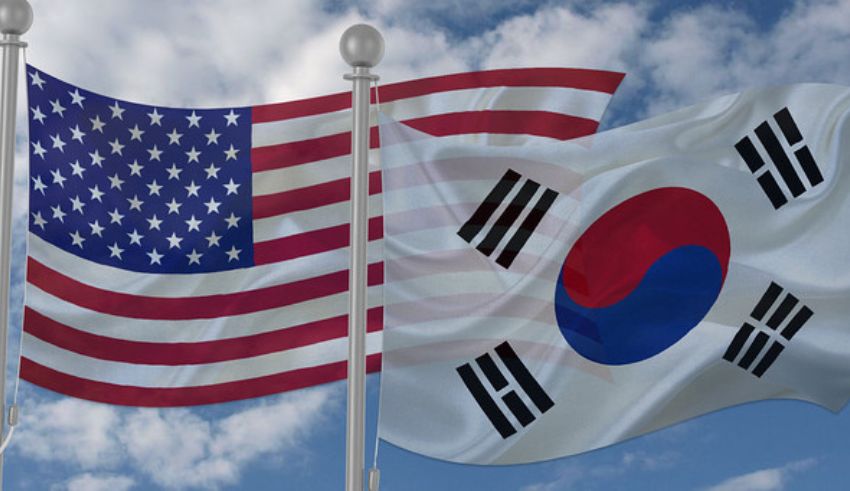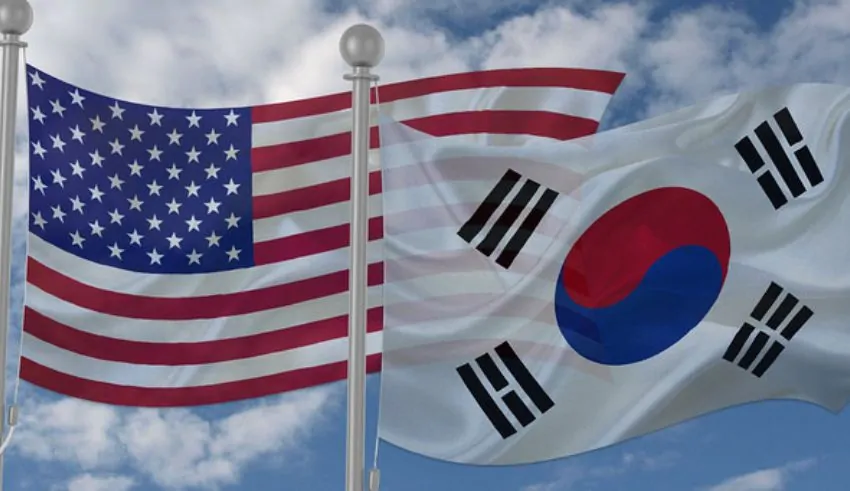

(C) Market Watch
Should former U.S. President Donald Trump be re-elected in the next November election, South Korea has voiced concerns over the viability of Washington’s nuclear promise to defend her friends in East Asia. At a seminar sponsored by the Sejong Institute, an international research group with an eye toward diplomatic and security issues, Seoul’s Principal Deputy National Security Adviser, Kim Tae-hyo, delivered the warning. Trump’s earlier comments urging friends to give more money to their security cause questions over the durability of the U.S. nuclear umbrella.
Along with Australia and Japan, South Korea benefits from American extended deterrence, sometimes known as the “nuclear umbrella.” Giving these countries U.S. nuclear security ensures they won’t have to develop or purchase their own nuclear arsenals, therefore guaranteeing their strategic defense system. As part of this commitment, the United States has vowed to dissuade and, should non-nuclear or nuclear threats against its allies materialize, react.
Emphasizing extended deterrence as a necessary instrument for safeguarding friends while advancing world nonproliferation, the U.S. Air Force policy on nuclear operations stressed in their December 2020 update South Korea’s reliance on this security system has kept the nation free from nuclear armaments even as tensions with a nuclear-capable state, have grown.
Kim Tae-hyo’s remarks draw attention to concerns that should Trump win office, he may give financial cost-sharing in defense agreements first priority including U.S. strategic asset deployments on the Korean Peninsula. Previously, Trump has argued that allies should assist more with their own security, thereby straying the U.S.-South Korea relationship and perhaps jeopardizing South Korea’s posture of defense against the growing nuclear threat from North Korea.
During his first term, Trump’s transactional approach to relationships raised doubts in South Korea on the feasibility of American military support. Should such a plan be adopted once more, it might force South Korea to reconsider its military policy, including the possibility of nuclear arms, an action with major regional and worldwide repercussions.
South Korea has been open in discussing perhaps developing its own nuclear weapons. Last year, President Yoon Suk-yeol told Pyongyang that should its provocations continue, the country could wish to consider acquiring nuclear weapons. Still, there is significant controversy over South Korea possibly becoming nuclear. Former defense minister Yoon Won-sik warned that this action will have severe consequences including souring of the long-standing U.S.-South Korea cooperation.
Still, the people of South Korea favors an autonomous nuclear deterrence pretty strongly. Recent polls indicate that roughly two-thirds of South Koreans agree with the expansion of home nuclear power. Kim Yong-hyun, the nominee for the country’s defense minister presently under review, also underlined that in response to North Korea’s continuous nuclear developments, nuclear weaponry are under review.
Rising nuclear capacity of North Korea has prompted the Biden government to expand U.S. strategic deployments in the Indo-Pacific region. Restiterating Washington’s promise to its extended deterrence assurance, the USS Kentucky, a U.S. Navy submarine equipped with nuclear ballistic missiles, visited South Korea in July 2023 in great prominence. This show of force was taken as proof of the American will to defend friends against mounting North Korean threats.
According to the Bulletin of the Atomic Scientists, the United States has over 100 nuclear gravity bombs for prospective use in backing friends outside of Europe, including South Korea and Japan. As of September 2023, the United States boasts 3,548 nuclear weapons, therefore ensuring its ability to respond decisively to any nuclear threat from adversaries like North Korea.
Under his presidency, Trump conducted three high-profile meetings with Kim Jong-un, the leader of North Korea, so engaging nuclear diplomacy with that country. Despite these projects, Pyongyang insisted on being a global nuclear power and refusals to denuclearize. Estimates from the Stockholm International Peace Research Institute indicate that North Korea has carried six tests since 2006 and has about fifty nuclear weapons. Some experts think the government could have enough fissile material for up to ninety nuclear bombs.
While Trump claims his diplomacy stopped escalation, critics argue North Korea’s nuclear capacity developed under his leadership. Trump’s assertion that Kim Jong-un “got plenty of nuclear energy” emphasizes how still North Korea poses a threat to regional stability.”
Tensions with North Korea remain strong, and as global security dynamics evolve South Korea has to make crucial decisions about its defense strategy. With nuclear deterrence at center focus and financial cost-sharing top priority, Donald Trump’s likely reelection could alter the U.S.-South Korea alliance. While maintaining its security posture in front of a nuclear-armed and unstable North Korea, South Korea needs to negotiate these uncertainties.
Since yesterday, May 2, 2023, at the Mall of Asia Arena in Pasay, Ahtisa Manalo has demonstrated her brilliance by…
“you’re nothing but a trying hard copycat” Character- Lavinia Arguelles Film- Bituing Walang Ningning (1985) Context- Lavinia confronts her rival…
During the first months of 2025 WWE released several prominent wrestlers who were part of their talent roster. Professional wrestling…
Seventeen year old sprint prodigy Rin Kubo continues to make athletic history in Japan. At the Shizuoka International Athletics Meet,…
NextRise 2025-the biggest startup and tech event in Asia-is ready to take place in Seoul on June 26-27 at COEX,…
On this reunion occasion marking 20 years after their debut, the anticipation of the fans seems to be reaching greater…
This website uses cookies.
Read More